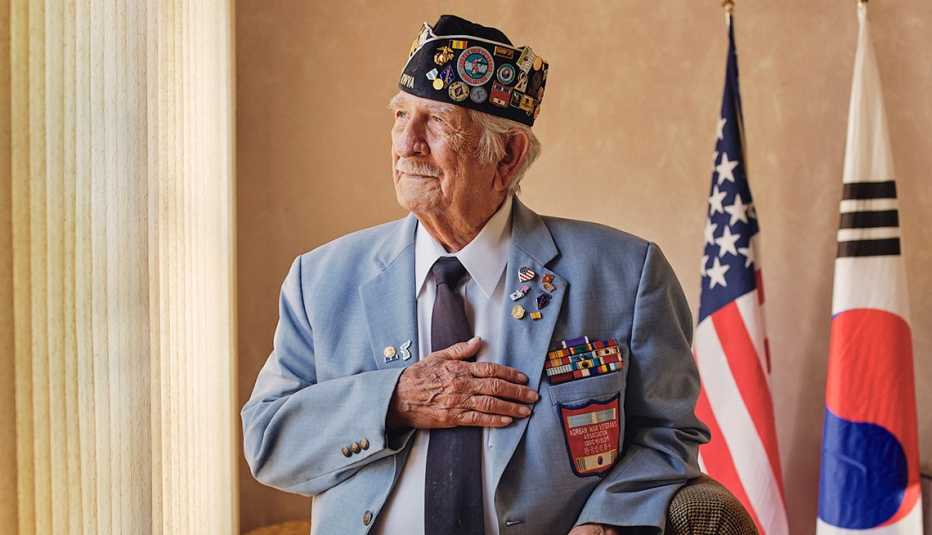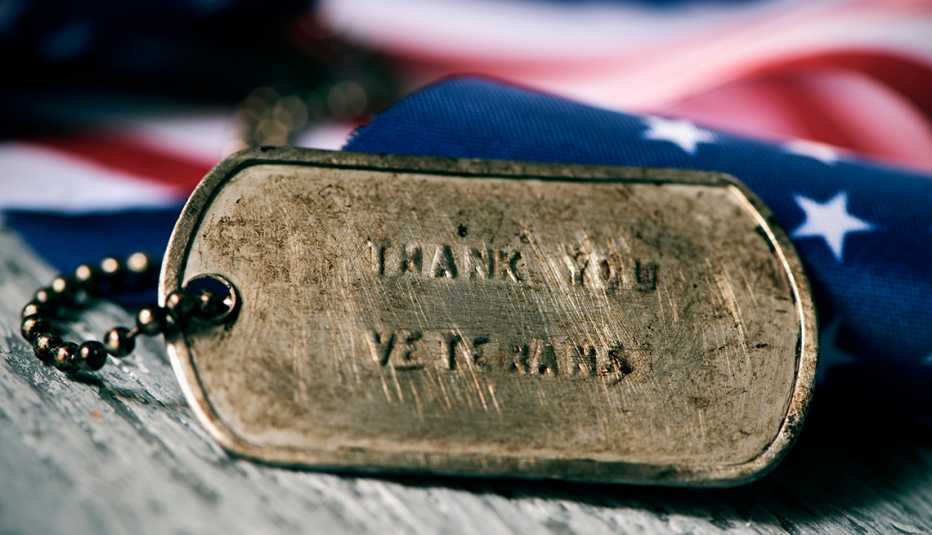AARP Hearing Center


My story is about hell and hatred, but it is also a story about love.
Now you’ve got to understand something. A 19-year old that goes into the military doesn’t have a clue what he’s getting into. He doesn’t have a clue about war. He doesn’t have a clue about what a bullet could do to a human body. When I first went to Korea, I said to my superiors: Why are we going to Korea? Where the hell is Korea? Nobody knows anything about Korea.
I was assigned to Baker Company, and we were headed to the MLR — the Main Line of Resistance. We only got three-quarters of the way when we were hit with light fire and mortars. The Chinese liked to attack when it was getting dark. They would blow a horn and then: attack. We jumped out of our truck. The sergeant kept yelling, “Head for the rice paddy!” I started praying. I prayed to every saint, in every religion I could think.


You can subscribe here to AARP Veteran Report, a free e-newsletter published twice a month. If you have feedback or a story idea then please contact us here.
Over the next many months, there were many battles. There were monsoons, rain so heavy you couldn’t see in front of you. I carried a Browning automatic rifle. It weighed about 20 pounds, and the ammo belt weighed about 13 pounds. I carried a .45 and two canteens of water because it got so hot. I carried all that up mountains, time and again.
One day, we were under heavy fire from the Chinese for 24 hours straight. The guy next to me got hit in the stomach. I had just met him, and he fell on top of me. I put my hand on his belly to apply pressure, but his whole insides were blown out. This was the first, but not the last time, a fellow Marine died in my arms.
In July of 1952, I was wounded. They flew me on a helicopter to a hospital ship and I lived in a bucket of ice for two weeks because my right leg was so swollen. I thought I had a million-dollar wound, because I thought I was going home. But they sent me back to my unit. Back into the war.






























































More From AARP Veteran Report
10 Things You Never Knew About Veterans Day
A chance to celebrate and honor all those who served our nation in uniformA Warrior’s Journey Toward Peace and Purpose
After this veteran lost both legs in Iraq, he turned tragedy into inspirationComplete Guide to AARP Veteran Benefits and Resources
Supporting America's veterans is a top priority at AARPTHEN & NOW: Three Veterans Reunite after 57 Years
They landed at Fort Meade at the same time, then served in the Vietnam War together